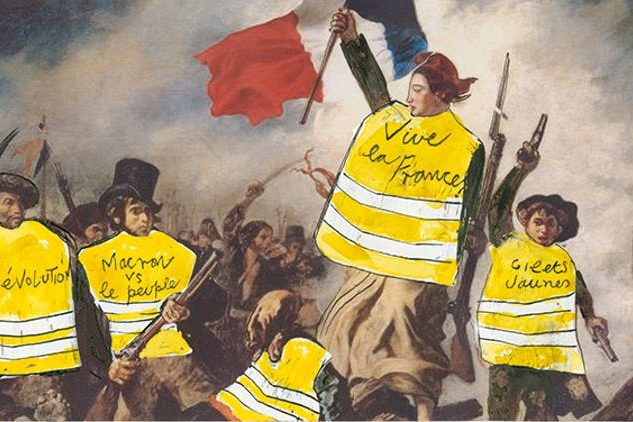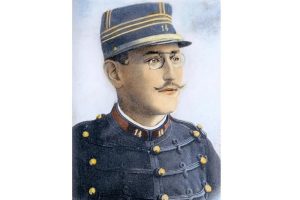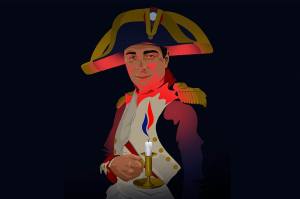I met a friend for lunch in Paris last Sunday. He and his wife had come up from the countryside for a weekend’s shopping. As we sat down, their nerves were still frayed from the previous day. It was, they told me, the most terrifying few hours of their lives. Trapped between the rioters and the police, they retreated to their hotel, where staff instructed them to stay in their room. The mob soon arrived and against a background noise of helicopters, police sirens, breaking glass and detonations, they tried unsuccessfully to force their way inside the hotel while singing an ode to the Révolution.
It has been said that the gilets jaunes movement is to Emmanuel Macron what the miners’ strike was to Margaret Thatcher in the mid-1980s. Not in the slightest. While the comparison might please Macron — who, from the moment he was elected, has staked his reputation on his determination not only to reform his country’s economic model but also to stand firm when the inevitable backlash erupted — it hides the fact that what the French President faces is far more serious.
Thatcher had to see off the fury of miners fighting pit closures, a dispute that dragged on for a year but which failed to mobilize other industries or the public at large. Macron is confronted by a nationwide rebellion that unites people of different regions, classes, occupations and political allegiances. While protesters rampaged through Paris last Saturday there was also violent unrest in Toulouse, Bordeaux, Calais, Marseille, Narbonne, Nantes and many towns. This week, more than 100 high schools have been blockaded by pupils who, emboldened by the gilets jaunes, have relaunched their springtime protest movement against educational reform. Farmers, lorry drivers, construction workers and ambulance staff are also threatening to go yellow.
It’s a nationwide insurrection, a revolt against Macron, his government and above all, the world that the President champions: one that is green, progressive and liberal. Hence why the gilets jaunes have captured the imagination of various sections of society. They are the overlooked and the unemployed. They are anarchists, fascists, communists and Catholic nationalists. They also represent the different regions of France. While a hardcore of Paris hoodlums may have joined the fray late on, the accents my friend heard above the bedlam were from the provinces. So most of the protesters won’t be deterred by Macron’s announcement that his government will suspend the fuel tax. They now want Macron’s head, for having had the nerve to try to reform France.
Macron wants to reduce the €715 billion that France spends annually on social welfare (32 percent of the country’s GDP, compared with an average of 27 percent for the rest of the EU), but many of his compatriots consider the welfare system sacrosanct. ‘This movement is connected to the defense of the old French model, within the nation-state redistribution industry,’ explained the French sociologist Michel Wieviorka. Millions of French are not only resistant to change, they are frightened by the thought of it. Yet their fears, their lifestyle, their ‘nothingness’, to quote the President, are despised by the government.
Macron and his inner circle continue to dismiss their critics. The President’s official spokesman, Benjamin Griveaux, recently described right-wing voters (in his words, ‘people who smoke cigarettes and drive diesel cars’) as ‘not the 21st-century France we want’. Macron may come to regret this insouciant rhetoric.
Despite his unnerving trip to Paris, my friend supports the gilets jaunes’ cause, because he believes the government has given up on large swaths of the country. He is a dentist in Aveyron, a farming region in southern France, and in recent years he has seen a sharp drop in living standards. This is about far more than fuel. The vests have become a symbol of resistance, a badge of honor, worn with pride by the downtrodden. In that respect they are like the sans-culottes, whose name became synonymous with the French Revolution.
This article was originally published in The Spectator magazine.


















